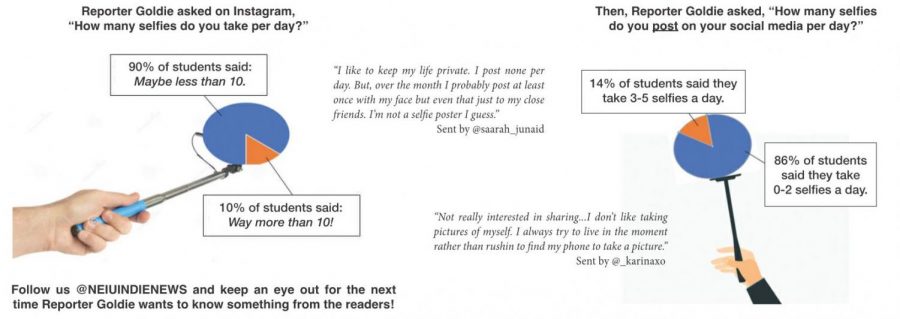The era of vanity, insecurity and narcissism
November 19, 2019
Social media has infected our view of social interaction.
On one hand, we are indefinitely connected to one another, essentially living online without pause. On the other, we have become so disconnected from reality that we believe ordinary, everyday occurrences are worthy of indiscriminate sharing.
For readers old enough to remember MySpace, let’s reminisce on the then-newfound importance of our online personas. Being relegated from the top spot on our friends’ “top eight” was the equivalent of a real-life demotion. Photo comments became transactional, almost operating as a makeshift MySpace currency. Social media provided us a platform to share everyday, mundane occurrences as if they were something worth projecting onto others. With the benefit of retrospect, the MySpace-era sounds like a clumsy plotline of Charlie Brooker dystopian thriller, “Black Mirror.”
What’s worse is that people responded, providing us the perception that our lives are more interesting than they actually are.
Since then, a variety of alternatives such as Facebook, Instagram, Twitter and Snapchat have manifested themselves. Not only has social media taken away any sense of urgency for in-person communication, but we’ve essentially engaged in a subconscious competition with one another, desperately seeking more followers, likes and/or mindless approval from masses of strangers.
Feigning happiness online usurped actual, real-life happiness in importance. We watch concerts through our phone screens. We inundate our followers with doctored images of ourselves, carefully selected to mask the flaws and imperfections that make each of us uniquely beautiful. We share intimate moments with people we have yet to meet for the sake of projecting an ideal, oftentimes embellished lifestyle.
Our marriage to our online persona begs us to self-reflect: How vain must our generation be to think that others care about our meals? How narcissistic must we be to think others want to watch a video of us staring into a camera, lip-syncing meaningless lyrics? How self-obsessed have we become to take pictures of ourselves every single day in search of others’ approval?
Yet, each of these behaviors have been normalized.
When my mother passed in 2014, I was tasked with constructing a commemorative collage for her funeral. I remember rummaging through old boxes of photos, looking for the perfect set of photographs capable of communicating her personality to those paying their final respects.
What struck me most was her utter indifference toward physical appearance, an apathy that permeated throughout each album. My mother and her loved ones didn’t take pictures to impress. They didn’t incessantly explore different angles and filters to coerce more likes or heart reactions. Instead, they took pictures to capture memories.
My mother, whose beauty resonated throughout any room she entered, had no reservations about taking an ugly photo so long as it captured the essence of the moment. It appears that such sentiments have been abandoned by our generation. Predetermined poses make every occasion appear plastic and uniform. Our memories are filtered, sanitized to appeal to voyeurs looking through the window of social media in an attempt to penetrate our personal lives.
Unfortunately, our self-esteem is now tied to artificial popularity or lack thereof. Social mirror theory states that our own self-perception is dependent on how others respond to us. If our efforts to glamorize our personal lives go unacknowledged, we inevitably incorporate that into our self-worth. We’ve become self-obsessed, posting to impress others so that we can fill a void that simply did not exist prior to the emergence of social media.
Social media has also ruined romantic relationships. While outlets such as Facebook and Tinder have expanded our ability to meet new people, prospective partners are able to dissect our strengths and flaws without ever sitting down across from us. We are expected to engage in an indefinite 24/7 conversation with a potential lover until we inevitably lose interest. When our relationships hit a rough patch, we are so inundated with options that reconciliation is of secondary concern, so long as we are getting an adequate amount of attention from whoever happens to be in our inbox on that day.
We must resocialize ourselves to value our own memories without seeking validation from others. Our generation must mobilize an effort to prioritize face-to-face interaction. We must stop seeking likes and start searching for authenticity and connection. Most importantly, we must learn to embrace our imperfections and blemishes rather than disguise ourselves with the newest Snapchat filter.
Until we are able to conduct an internal investigation and determine what constitutes an authentic, human connection, we will remain slaves to the seductive lure of social media.








Jones • May 3, 2020 at 3:52 am
Great read.
Thank you.